 |
|
|
 |
 |
 |
 |
| ALL STATEMENTS ABOUT : |
| Learn Another Language |
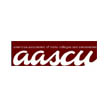 |
AASCU
American Association of State Colleges and Universities
Profile >
|
“Among the myriad of changes facing higher education, none is more compelling than the need to provide campus environments that prepare students to live and function productively in a business and social milieu of great cultural, economic and linguistic diversity. If today's educated people are to be able to move comfortably in many different cultures, they must have the advantage of a global education. They should be exposed to other languages so that they can respect other tongues and abandon the arrogance that claims everyone knows or should know English. They must spend time with people of other races.”
Full Statement >
|
|
 |
Alliance
Alliance for International Education and Cultural Exchange
Profile >
|
“It is through international education that our nation will expand the educational and exchange infrastructure through which we produce and renew foreign-language and foreign-area expertise. The decline in competence in this area became strikingly apparent when September 11 revealed the paucity of expertise in critical languages and areas in federal law enforcement and intelligence agencies. This is a direct reflection of the demise of teaching and research capacity in these subjects at our academic institutions.”
(Joint statement with NAFSA)
Full Statement >
“Globalization is obliterating the distinction between foreign and domestic concerns.
Most domestic problems in today.s world are also international. The global economic
and technology revolutions are redefining the nation.s economic security and reshaping
business, life, and work. The opening of global markets, the explosion of trade, the
globalizing effects of Internet technology, and the need for U.S. business to compete in
countries around the world require much more global content in all U.S. education, as
well as more Americans with specific foreign language and country expertise.”
“What is needed is a policy that promotes international education in the broadest sense,
including supporting the learning of foreign languages and in-depth knowledge of other
cultures by Americans, promoting study abroad by U.S. students, encouraging students
from other countries to study in the United States, facilitating the exchange of scholars
and of citizens at all levels of society, and supporting the educational infrastructure
through which we produce international competence and research.”
“American foreign language skills are in critically short supply and will remain so
until we take bold steps to enhance the infrastructure for teaching foreign languages
in our institutions. The U.S. government requires 34,000 employees with foreign
language skills, and American business increasingly needs internationally and multi-
culturally experienced employees to compete in a global economy and to manage a
culturally diverse workforce.”
(Joint statement with NAFSA)
Full Statement >
|
|
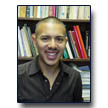 |
Ayala, Jesus
BA in Political Science and American Studies, minor in Ethnic Studies
University of California, Berkley
Profile >
|
“Although I am a native Spanish speaker, studying abroad is Spain was vital for me. While is Spain I was forced to fully develop my Spanish skills in order to compete academically with native students. While abroad I honed my verbal, writing, research, and critical analysis skills; and I challenged myself, both in school and in my daily life. When I first arrived in Spain the thought of writing a scholarly paper in Spanish was dreadful. Now, even if I had to write an entire thesis in Spanish I would not panic.”
Full Statement >
|
|
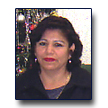 |
Ayala, Ofelia
Parent of study abroad student
Profile >
|
“I always believed that reading, writing, and speaking Spanish fluently would allow my son to pursue unique opportunities. For this reason, I have always been strict about not allowing my children to Speak English in my home. Since Jesús has spoken Spanish at home all his life, when he left to Spain his Spanish skills were already exceptional. Studying abroad, though, gave him the extra push he needed to master the language. Our relatives in Mexico are amazed that he is able to express himself so eloquently and assertively.”
Full Statement >
|
|
 |
Bush, George W.
Former U.S. President
United States
Profile >
|
"I call on schools, teachers, students, parents, and community leaders to promote understanding of our nations and cultures by encouraging our young people to participate in activities that increase their knowledge of and appreciation for global issues, languages, history, geography, literature, and the arts of other countries."
"By studying foreign cultures and languages and living abroad, we gain a better understanding of the many similarities that we share and learn to respect our differences."
Full Statement >
|
|

|
Clinton, Hillary Rodham
Current U.S. Secretary of State
United States
Profile >
|
"Because Senator Fulbright knew – in fact, he once said – that, “Educational exchanges can turn nations into people.” And what did he mean by that? Well, if you think of the United States or you think of any other country in the world, and you don’t know anyone and you don’t understand the language or the culture or the history, it’s easy to lose sight of the common humanity that connects us. And Senator Fulbright knew that humanizing international relations was critical for achieving lasting peace and progress. Because when the leaders and citizens of different countries can find common ground with each other we are far more likely to negotiate our differences peacefully."
Full Statement >
|
|
|

|
Duncan, Arne
Current U.S. Secretary of Education
United States
Profile >
|
"The United States is a country made up of many cultures—and we often celebrate that diversity. But just as often, we rely on the predominance of English as the language of global business and higher education when looking toward the world."
"This reliance can put us at a disadvantage. We haven't been compelled to meet our global neighbors on their own terms, and learn about their histories, values and viewpoints. I am worried that in this interconnected world, our country risks being disconnected from the contributions of other countries and cultures. Through education and exchange, we can become better collaborators and competitors in the global economy."
Full Statement >
|
|
|
 |
FitzSimons, Katherine C.
Graduate Student, B.A. Spanish, Journalism
University of Southern California
Profile >
|
"Because of my study abroad experience in Spain, I can now communicate, work, and make friends with a much broader population of people, and I can make others feel more comfortable by interacting with them in their native language-Spanish."
"By studying abroad in the Basque country, I feel as though I received a duel education; I improved my Spanish immensely, while beginning to learn an ancient language about which I had previously known nothing. I had never expected to learn two languages, or learn about two distinct cultures in the same city. This added bonus to studying abroad truly persuaded me to appreciate Spain’s diversity-a type of diversity I would not have guessed existed outside my own diverse home of Los Angeles."
Full Statement >
|
|
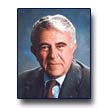 |
Gilman, Benjamin (R-NY)
Former Congressman
Congress
Profile >
|
“In my years of experience with our nation's foreign policy, I see that the most enduring influence is achieved through our international exchange programs. People-to-people contact - the seeing, doing and interacting - is how we learn to appreciate similarities, differences or other ways of doing things. Exchanges provide forums for new ideas, training opportunities and the chance to build support networks. Professionals, high school students, academics or mid-level government officials all benefit from the experience of interacting with their international counterparts. This exposure to a world outside of one's home country leads to greater understanding, which is particularly important for the emerging democracies where people are looking for a lifeline to secure reforms and freedoms.”
Full Statement >
|
|
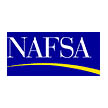 |
NAFSA
Association of International Educators
Profile >
|
“It is through international education that our nation will expand the educational and exchange infrastructure through which we produce and renew foreign-language and foreign-area expertise. The decline in competence in this area became strikingly apparent when September 11 revealed the paucity of expertise in critical languages and areas in federal law enforcement and intelligence agencies. This is a direct reflection of the demise of teaching and research capacity in these subjects at our academic institutions.”
(Joint statement with Alliance)
Full Statement >
“Globalization is obliterating the distinction between foreign and domestic concerns.
Most domestic problems in today.s world are also international. The global economic
and technology revolutions are redefining the nation.s economic security and reshaping
business, life, and work. The opening of global markets, the explosion of trade, the
globalizing effects of Internet technology, and the need for U.S. business to compete in
countries around the world require much more global content in all U.S. education, as
well as more Americans with specific foreign language and country expertise.”
“What is needed is a policy that promotes international education in the broadest sense,
including supporting the learning of foreign languages and in-depth knowledge of other
cultures by Americans, promoting study abroad by U.S. students, encouraging students
from other countries to study in the United States, facilitating the exchange of scholars
and of citizens at all levels of society, and supporting the educational infrastructure
through which we produce international competence and research.”
“American foreign language skills are in critically short supply and will remain so
until we take bold steps to enhance the infrastructure for teaching foreign languages
in our institutions. The U.S. government requires 34,000 employees with foreign
language skills, and American business increasingly needs internationally and multi-
culturally experienced employees to compete in a global economy and to manage a
culturally diverse workforce.”
(Joint statement with Alliance)
Full Statement >
|
|
 |
Riley, Richard W.
Former U.S. Secretary of Education
Department of Education
Profile >
|
“I will be the first to tell you that we Americans have much to learn from other nations when it comes to learning new languages, and we are just as eager for help. More than any other developed nation, the United States has fallen behind when it comes to teaching our students the importance of learning an additional language.”
Full Statement >
|
|
|
 |
|
|
|
 |
|
|
 |